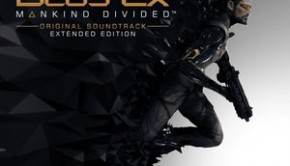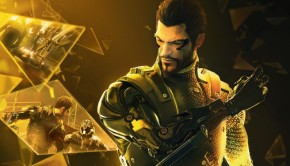Alexander Brandon Interview: Going Solo
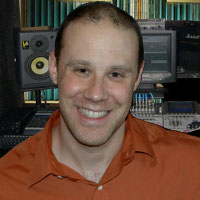 Alexander Brandon is the man behind the music of such games as Tyrian, Jazz Jackrabbit 2, Unreal, Unreal Tournament, Deus Ex, and Deus Ex: Invisible War. He is currently employed by Obsidian Entertainment in California as the company’s audio director, working on projects such as Neverwinter Nights 2: Mask of the Betrayer and Alpha Protocol.
Alexander Brandon is the man behind the music of such games as Tyrian, Jazz Jackrabbit 2, Unreal, Unreal Tournament, Deus Ex, and Deus Ex: Invisible War. He is currently employed by Obsidian Entertainment in California as the company’s audio director, working on projects such as Neverwinter Nights 2: Mask of the Betrayer and Alpha Protocol.
A few weeks ago, Brandon realized one of his dreams with the release of a digital album entitled Era’s End. I sat down (virtually) with the composer to learn more about his career, his opinion on the game music industry, and the recent projects he worked on. In addition, he exclusively discusses his various original albums — past, present, and future. This interview originally occurred at the site VGM Rush and has since been republished.
Interview Credits
Interview Subject: Alexander Brandon
Interviewer: François Bezeau
Editor: François Bezeau, Chris Greening
Coordination: François Bezeau
Interview Content
François: Alexander Brandon, thank you for accepting to do this interview.
Alexander Brandon: No problem on the interview and I appreciate the opportunity. Here goes!
François: It was no coincidence that you became a game composer, with your background as a game and music enthusiast. During your youth, what were the games and artists/albums that had the biggest impact on your career’s direction?
Alexander Brandon: I’d have to say I was never very good at games, but I loved them all the same. My favorites would have to be System Shock, Doom, and SimCity on the PC for the “classics”, though there are many more but those three probably top the list. For music, everything from Jean Michel Jarre to John Williams. My first “pop” song that I enjoyed was “Kyrie” by Mister Mister. Prior to that my musical listening repertoire consisted of Mozart, Bach, Schubert, Beethoven, Chopin, and Bartok. I still have fond memories of riding a BMX bike with a Sony Walkman and earbuds listening to a mix tape with songs like Salt n’ Pepa’s “Expression” and Heart’s “Nothin’ at all”.
François: Many things have changed since then. What are your current interests in these categories?
Alexander Brandon: Indeed they have. I’m an old man now and am listening less to pop and more to varying genres such as electronica and progressive rock. Ozric Tentacles somehow never go wrong on my Zen mp3 player and the same goes for Porcupine Tree. A staple of all those years was Peter Gabriel. For games, I have to admit for its minimalist soundtrack, Half Life 2 is by far the best game I have ever played. My son Nicholas loves it when I turn off the enemies and we play the “Dune Buggy Game”. I’m way out of the current releases though, I haven’t touched The Orange Box yet and I’m dying to play BioShock and Halo 3 as well. The most recent game I’ve played is Metroid Prime: Hunters. Decent soundtrack actually.
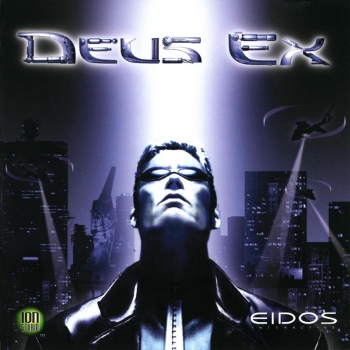
François: How do you go at writing music? What are your inspirations?
Alexander Brandon: Inspiration in a game often comes from grandiose ideas or visual elements, be it concept art or in-game. I try to combine sources from both films and earlier games. Earlier titles provided only composition, not so much the requirement of heavily mixed and bombastic instrumentation as is expected by Western audiences. Experimentation is definitely a good thing.
François: From Tyrian to Mask of the Betrayer, you have worked on a good amount of titles so far. Which would you consider your favorites and why? On a smaller scale, which single tracks are you most proud of?
Alexander Brandon: While Mask was a dream come true, my favorite was probably Deus Ex overall, and not because the music was necessarily cutting edge or super well done. The game itself was great. I still get compliments on it and I believe it remains one of the top games ever released, so it is my current crown jewel. People (as well as myself) most enjoyed the Hong Kong track from that game. It is a very good stand alone piece that stands out a bit stylistically.
François: Were you ever limited by a director when composing for a certain project or did you always write with complete freedom?
Alexander Brandon: I felt Deus Ex: Invisible War was more sparse than it should have been. The design lead really pushed “Thief” as a reference. Don’t get me wrong — I love that game series and all the audio in it — but I think Deus Ex has more depth to its gameplay choices and the music should have reflected that.
For just about all my other projects, I provided solid reasoning into my decisions for either my writing or composers I would hire, and sometimes I’d get the usual “that sounds like a synthesizer” argument, to which I have a very powerful arsenal of responses now, but for the most part its complete freedom these days.
François: Outside of your own works, are there any game composer and soundtrack that you admire?
Alexander Brandon: Holy cow, where to begin? Team Fat for their pioneering work in Wing Commander, Frank Klepacki for ushering in great studio tracks with the original Command & Conquer, Hip Tanaka and Koji Kondo for… well, need we mention what they’ve written? I have a huge spreadsheet of my favorite video game music; there are about 800 pieces in it.
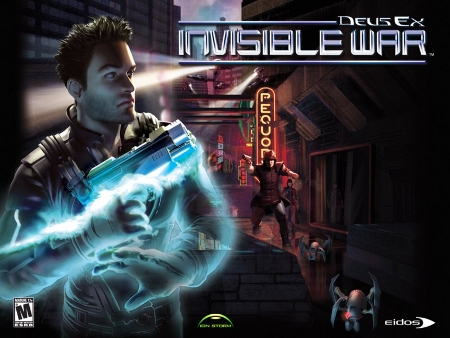
François: I know that you enjoy games and music. Aside these, what are your other interests in life?
Alexander Brandon: My family — a beautiful wife and two wonderful sons. A secret desire is to one day become an actor. I also love the outdoors. I’m dying because California is a prime place to explore yet our little ones prevent long trips a wee bit.
François: You are involved in a number of game audio organizations and events, for example G.A.N.G. and Project Bar-B-Q. This is a sign of your concern with this medium. What do you consider to be important in game music?
Alexander Brandon: The advancement of game audio in general. We need real-time tools and a solid workflow from the start of a project’s production phase, and that happens very rarely. I will continue to fight for that day, which will come one day when we’re in line with film’s post production process. I also think separating game music from film music instrumentally and stylistically is important and a huge challenge.
François: The next question might seem silly since the answer will be obvious, but here goes nothing: How important do you consider audio / music to be in the gaming experience? Is your opinion shared by your coworkers?
Alexander Brandon: Audio / music is vital, but many have correctly observed that people expect it. It is difficult to really wow someone with audio and easy to do so with visuals. With bad audio, the game becomes bad. Yes, all my colleagues agree with this. It’s why I have a job!
François: In accordance with the evolution of game music, do you find that it is going in the right direction? Many Western games are trying to imitate films more and more, and their soundtracks are following this trend by adopting an ambient/atmospheric approach, often using an orchestral sound palette. This is frequently to the cost of originality and memorable themes. Do you agree with this and do you think it is encouraging?
Alexander Brandon: Ah yes, I do agree with this. The work involved in getting a violin to sound perfect usually supersedes the work involved to get an effective theme. This is something I’m encouraging composers to work on for our titles at Obsidian.
François: During the ’80s and early ’90s, game music was unique mainly because of its sound, which usually came from limited chips. Nowadays, it comes in every kinds of sound, just like any other types of music. So, it might not be as unique as before on this basis, added to a change in composition styles in many cases. Certain fans are starting to lose interest in the new generation of music as they can’t find anything special anymore. What do you think could be a solution for game music to retain a uniqueness? Should it really be different from other music categories?
Alexander Brandon: Well, I think game music, even if it is similar to film or television, will always have a place with fans. But for really making it unique, the key is to have music be more adaptive. When the player makes a choice, the music reflects that choice, either in a subtle or very obvious way. That is what will truly separate the medium. For instrumentation, the challenge is greater. Game musicians have the same palette as other musicians, and unfortunately people’s expectations (producers, other leads, etc..) really do have a large influence on a soundtrack. But take the use of Gregorian Chant inHalo. That was the first time something like that was done, in film or games, and it worked brilliantly. It’s just harder to achieve.
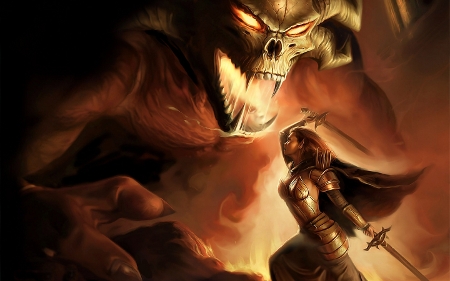
François: With the advent of technology came the possibility of incorporating licensed songs in games. Are you in favor of this practice?
Alexander Brandon: Not usually, but licensing is a tool, just as a composer is a tool (no, I’m not name calling!). For example in Grand Theft Auto 3, the radio is a vital part of making the gameplay what it is and the licensed songs contribute well to that. A reverse example is EA using a variety of very badly chosen pop songs in Tiger Woods 2004. The soundtrack got slammed in reviews. Then, BT was brought in to create the sound of golf, and he did. He specifically wrote for that title and the result was far more effective and enjoyable by the audience.
François: The are two ways to listen to game music: while playing the games (in context) and on a stand-alone basis. Going with the latter, do you think it might be possible for non-gamers to actually appreciate this kind of music. What elements would appeal more to them? Furthermore, how do you see the mainstream music industry?
Alexander Brandon: Non-gamers appreciate game soundtracks in the way that non-movie watchers (heh) appreciate film soundtracks. In some rare cases, they’ll hit on the pop charts (I mean take Miami Vice and Beverly Hills Cop!), but usually they’re very specific to the game itself and don’t necessarily work well outside that context.
François: Recently, we have seen a few live game music concerts coming to life in the West. Are they good ways to promote this art form? What is your opinion on the almost exclusive use of an orchestra to play the songs, many of which were originally in an electronic sound.
Alexander Brandon: Video game concerts are a great way to promote the genre. I think they use the epitome of live performance to express the simple chip tunes of old. However, I can envision a more enjoyable concert in a back street Speakeasy style club with a guy with some synths doing performance and remixes of Metroid!
François: In general game music fan communities, the most popular names are Uematsu, Mitsuda, Kondo, Yamaoka, etc. It seems all of them are Japanese. One might wonder why and question the quality of Western soundtracks. What are your thoughts on this?
Alexander Brandon: I think it may be that Japan reveres game music more than other countries. I think this will be changing, however. Japanese game music is under competition from very impressive scores these days, where previously the scores from Japan had the lion’s share of the market. I’d have to say that people like Martin Galway and Chris Huelsbeck have near equal popularity in terms of numbers as Uematsu, but Uematsu has more press and more exposure. A shame is that NES composers such as David Wise never got revered the same way. Wise’s works are just as valid as folks like Kondo and Tanaka.
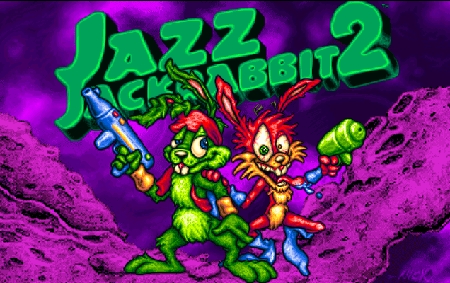
François: The main theme from Jazz Jackrabbit 2 contains a line with Necros’ name, but yours doesn’t seem to be present. Did he actually write/remix this theme or was his name there because you used one of his samples?
Alexander Brandon: Peeking through sample lists eh? J I believe I used a Necros sample, or a sample I created that I then copied into that particular piece with Necros’ name on the line (you can load samples between songs rather than from a mutual directory in Impulse Tracker). He didn’t write the theme, it’s 100% me.
François: Another Jazz 2 embedded-comment question. In the Water Level” track, you included a text line which went like this: “Respects to Hip Tanaka”. He is indeed a great composer and one of the pioneers. Would you like to talk about him?
Alexander Brandon: The Water Level in Jazz 2 used bits and pieces from the Metroid title theme, hence the Respects. I had the opportunity to interview Tanaka-san for Game Developer not long ago and it was definitely a high point in my career. He wrote a very polite letter which I now have framed in my studio at Obsidian. My friend Jason Emery first played the Metroid theme over the phone to me saying “wow, cool, 5 voices, listen to this…” and the rest is history. That was one of the pieces that directly influenced my passion to be a composer.
François: For several years, you’ve been a member of Straylight Productions. When did you arrive and left officially? Are you still in contact with Dan Gardopée and Michiel van den Bos?
Alexander Brandon: I joined Straylight when Andrew Sega left to work full time at Origin as a programmer and composer around 1996. He then moved from there to work at Digital Anvil. I officially left Straylight when I took a full time job at Ion Storm in 2000. The major games I worked on with Straylight were Unreal, Unreal Tournament, and Deus Ex. I still talk to Dan and Michiel once in a blue moon. Michiel completed work on Overlord not too long ago and I think is working with Kush games on sports titles.
François: For the soundtrack of Unreal Tournament, there was a few guest composers including Necros, Skaven, Tero Kostermaa, and Kai-Eerik Komppa. How have their involvement happened? Were you the one who contacted them or has the decision been made by someone else?
Alexander Brandon: Whoa! Who is Kai-Eerik Komppa?? I know the first three as well as Michel Van Den Bos, who grabbed the fourth? [Editor’s note: Kai-Eerik Komppa worked together with Tero Kostermaa.] Well, OK, let’s see, Necros was contributing to all my soundtracks MOD related, and Skaven had written a piece called Razorback that went perfectly with the Deathmatch theme. Skaven then submitted Tero’s work which was also excellent and it went in. I know there was an artist I didn’t recognize in there that I heard when I saw soundtrack compilations later, but have no idea how he got involved.
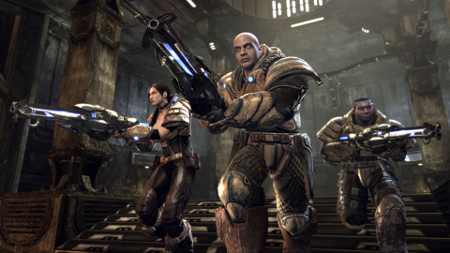
François: If you had the opportunity to work on another Deus Ex game, would you want to create music similar in style to the first game’s soundtrack?
Alexander Brandon: A bit, yes. There are elements of Deux Ex that would translate well to modern soundtracks — different synths, more creative use of themes, interactivity, etc.
François: How much music did you compose for Gauntlet: Seven Sorrows?
Alexander Brandon: I wrote around 20% of the music including the main theme. On this title, I worked alongside Inon Zur, Alistair Cooper, and Rod Abernethy.
François: You are credited in Marvel Ultimate Alliance for converting the music. Was the source material the score composed by Mark Griskey, Chance Thomas, and Cris Velasco for the console versions?
Alexander Brandon: The pieces I converted were done from source material by Chance and Cris. Thanks to Bob Rice for hooking me up with that project.
François: Now working at Obsidian, your most recent project was Neverwinter Nights 2: Mask of the Betrayer. According to your blog post on this topic, it was one of your fantasies of one day working on a D&D product. How was the experience?
Alexander Brandon: Hard work, long hours, but great. Totally great. The game is getting great reviews and selling well, because it is a great game. Our producer wanted higher reviews but I’m still happy with what came out. It’s being hailed as more of a sequel than an expansion. Great story, great visuals, excellent gameplay. And pretty good audio!
François: What are your feelings on the series’ previous composer, Jeremy Soule?
Alexander Brandon: He has done great work, but not on Neverwinter Nights. I honestly was a little disappointed with that score. Icewind Dale was better, so was Morrowind. Overall he is one of the most talented orchestral composers of the genre. Neverwinter Nights 2 had music by Heavy Melody in New York, and they did a brilliant job.
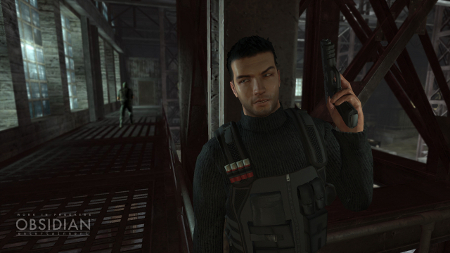
François: Are you working on any project at Obsidian right now, and how much sound producing are you doing versus actual music composition? Are you considering stopping to compose one day in favor of your other tasks as an audio director, like a number of past composers did?
Alexander Brandon: I’m working on every project at Obsidian in some way right now. [Editor’s Note: The most recent is Alpha Protocol.] I’m doing more sound engineering and implementation by far than music composition. I want to stop writing music for games to devote writing time to albums, and I want to manage game audio, which is far more involved than it used to be. Documentation, task coordination, budget and scheduling, integration, and tech work. It all doesn’t involve music writing, but I certainly have a lot of talks with composers that write for Obsidian.
François: Around 1999 and 2000, you’ve released a series of five albums under the AtmosphereScollection. Collaborators included Dan Gardopée, W.V. Flemming, and The Fat Man. Can you tell me a little about this side project?
Alexander Brandon: Sure! This was a set of albums released by XSIV music under supervision of Chris Bankston. Here was a guy who produced games for Sega CD who started his own company with venture capital from Germany. Mars Lasar, who did keyboard / synths on Seal’s first album, was also going to release music under XSIV and we discussed it at Tommy Tallarico’s house not long ago. Era’s End was a band name with which we were originally going to release music under through XSIV as an agent between us and a major publisher (Warner Bros.), but the company went bankrupt before we were able to sign. AtmosphereS was fun though — some of it was tracked and not many folks could tell the difference!
François: More recently, a new album, Era’s End, was released digitally on your website. From the first few listens, I can say it is excellent, keeping the good elements from your tracking background and mixing in modern techniques to create a sound that is both retro and fresh! What were your motivations behind Era’s End and how did the creation process go? When did you start working on it?
Alexander Brandon: Glad you like the songs! Those songs were originally written for commercial release in stores but, as mentioned, the deal didn’t end up going through. Bryan and I wanted to get more of it recorded live and mastered / mixed in a pro studio. The album was actually mastered eventually at Terra Nova studios in Austin, Texas, but the means to release it ourselves really wasn’t there until now.
François: Do you have plans to release more solo albums in the future? Will you keep the tracker influences or was it the last time you’ll use them as could suggest your album’s title?
Alexander Brandon: Absolutely. Keep your eye out for more releases coming soon. I think trackers will be used in some way on every album, though most of the work will be DAW based.
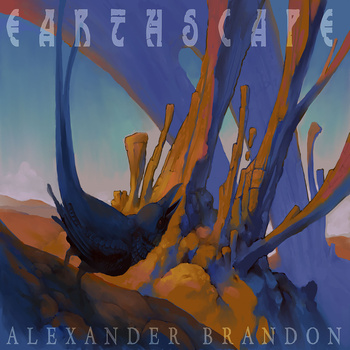
François: What can we expect from you in times to come? Also, do you have a dream project?
Alexander Brandon: I’m working on an album right now, but crunch mode on a project at Obsidian is taking most of my time. My dream project? Probably this album as well as another one called Earthscape. I’m going to write some marimba pieces for my wife since she is a great percussionist, and last but not least an opera for my mother.
François: Thank you again for your time and kindness. Would you like to add anything else before we conclude?
Alexander Brandon: Only that this is the most in depth interview I’ve ever done, and I really appreciate the very excellent questions you’ve asked and the appreciation you’ve shown for my work. I hope my future music meets with the same enthusiasm!
Posted on November 1, 2007 by François Bezeau. Last modified on April 6, 2014.

